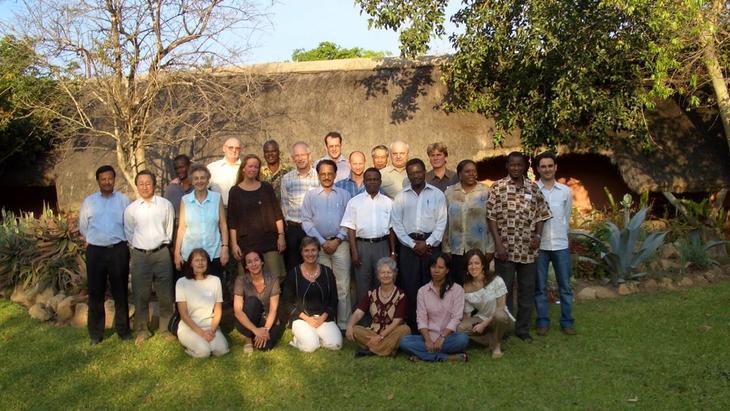
2006 – 2007: The Lusaka Informal International Consultations on Farmers’ Rights
An informal international consultation on Farmers’ Rights was held in Lusaka, Zambia, from 18 to 20 September 2007, jointly organized and co-hosted by the Norwegian and Zambian ministries of agriculture and food and the Fridtjof Nansen Institute (FNI), Norway.
The main objective was to contribute towards preparing the agenda item on Farmers’ Rights for the Second Session of the Governing Body of the International Treaty on Plant Genetic Resources for Food and Agriculture, scheduled for October/November 2007 in Rome, Italy. The intention was to achieve this by providing practical suggestions on what the Governing Body could do to support the implementation of Farmers’ Rights at the national level, and by identifying shared views related to the understanding of Farmers’ Rights, including actions required to raise awareness on the importance and relevance of Farmers’ Rights.
A total of twenty-seven participants, invited in their personal capacities and drawn from governments, NGOs, international organizations, research institutions and other private and public institutions, from twenty countries of different regions and with various backgrounds and expertise, took part in the discussion.
The consultation dealt with a range of topics related to Farmers’ Rights, including the following:
- The history of Farmers’ Rights, and differing perceptions on their content, as well as the identification of elements of a common understanding of what Farmers’ Rights entail and why they matter.
- A better understanding of farmers’ contribution to the conservation and sustainable use of crop genetic resources and farmers’ roles in in situ and on-farm conservation, in plant development and improvement, as well as farmers’ contribution to maintaining the global genetic pool, and the preconditions for current and future contributions from farmers.
- The state of realization of Farmers’ Rights, including protection of farmers’ traditional knowledge related to plant genetic resources for food and agriculture, their participation in benefit-sharing and decision-making and the rights of farmers to save, use, exchange and sell seeds and propagating materials, as well as other key issues in these areas.
- Pooling resources for realizing Farmers’ Rights at the national level, highlighting the role of farmers’ organizations, NGOs, breeders and researchers, as well as possibilities for networking and cooperation.
- Views on what the Governing Body can do to assist and guide countries in realizing Farmers’ Rights in terms of key issues that can be addressed in the Governing Body, as well as possible measures to be initiated by the Governing Body, and how a fruitful process in the Governing Body could be ensured.
Discussions were facilitated taking presentations by experts among the participants as points of departure, thereby drawing on their experiences and perceptions on relevant topics. A field visit to consult with farmers was part of the programme and feeding into the results.
The Lusaka informal international consultation on Farmers’ Rights resulted in a report (PDF) (634KB) and an input paper to the Governing Body of the Plant Treaty for consideration at its Second Session.